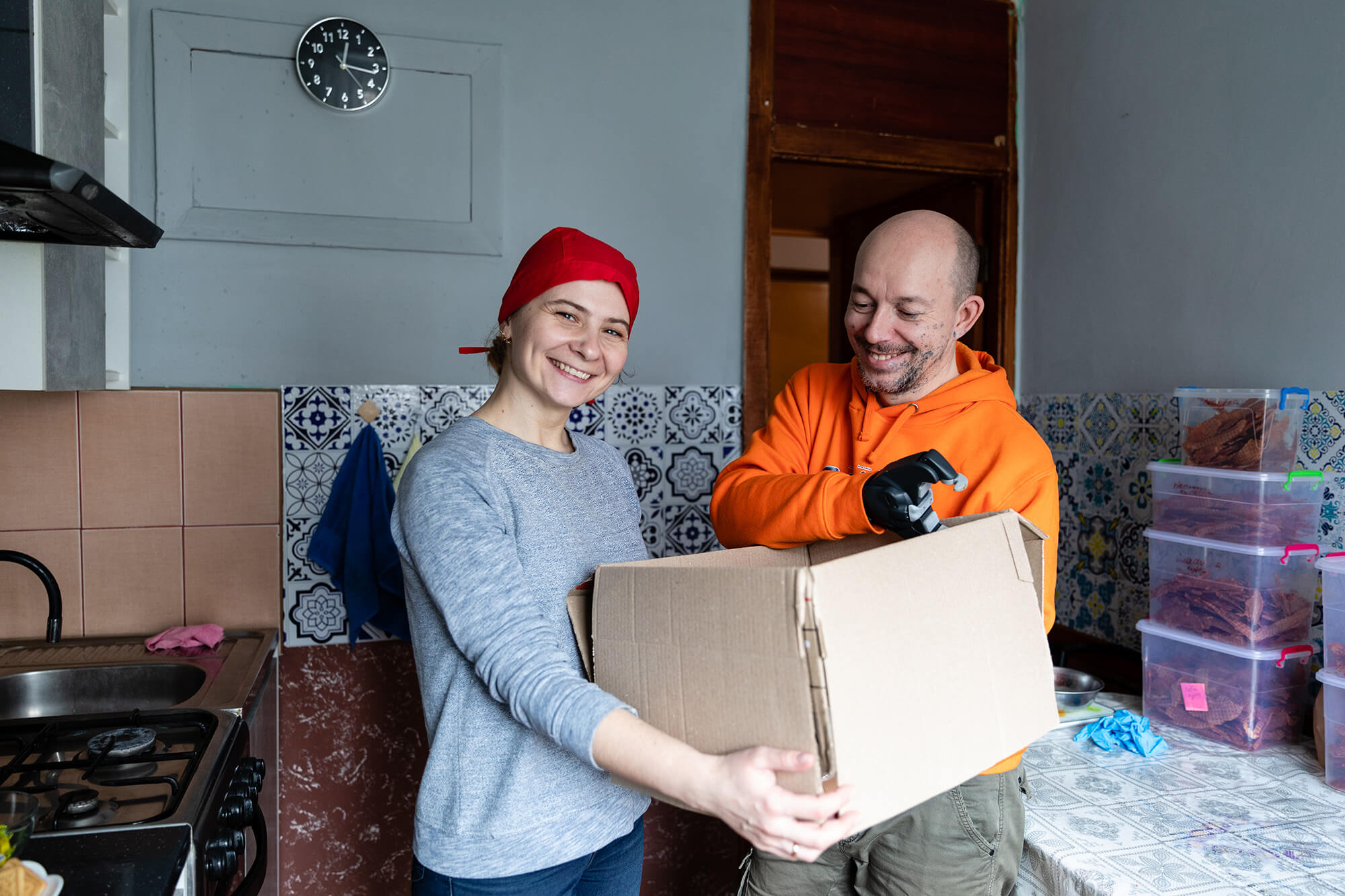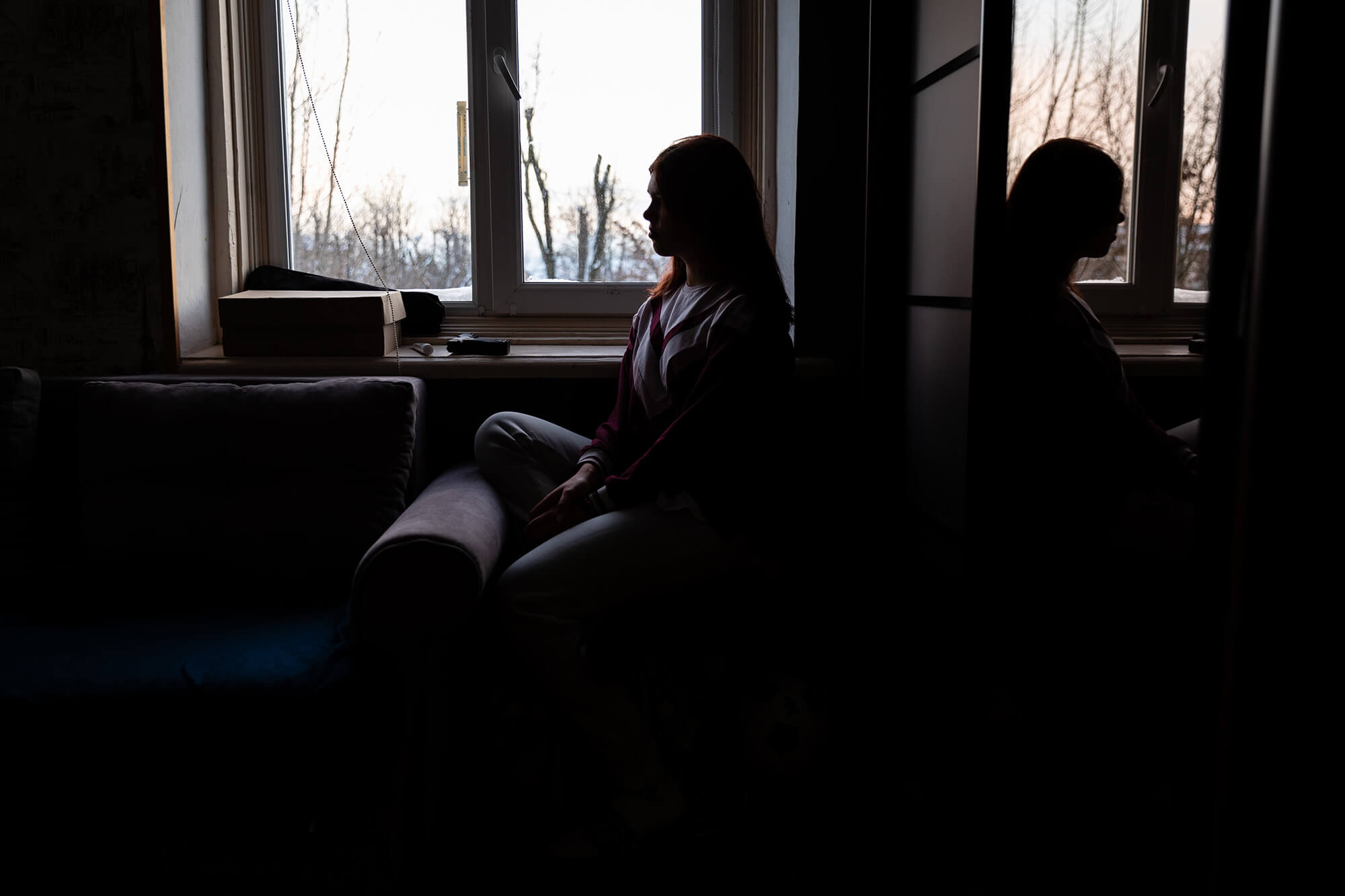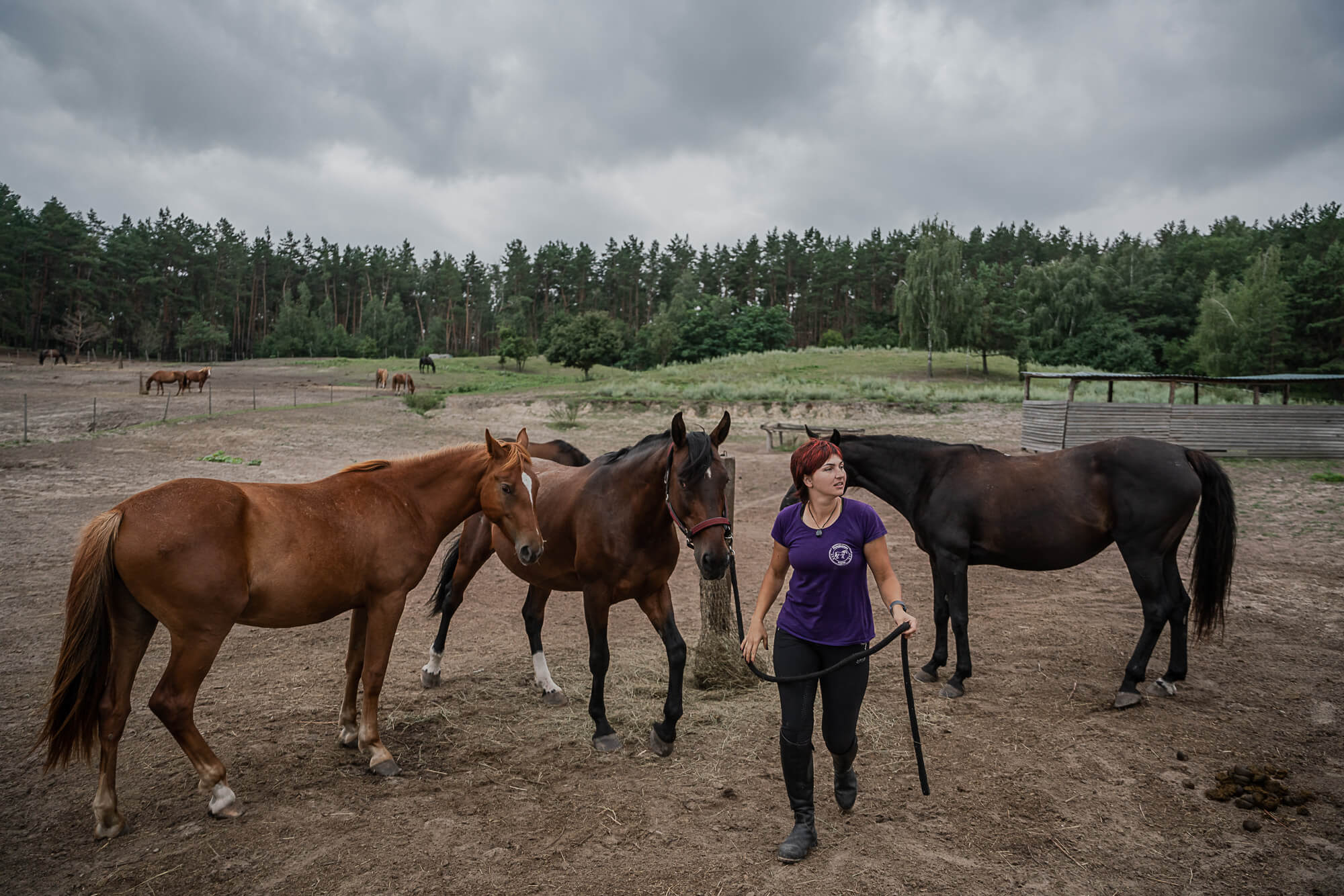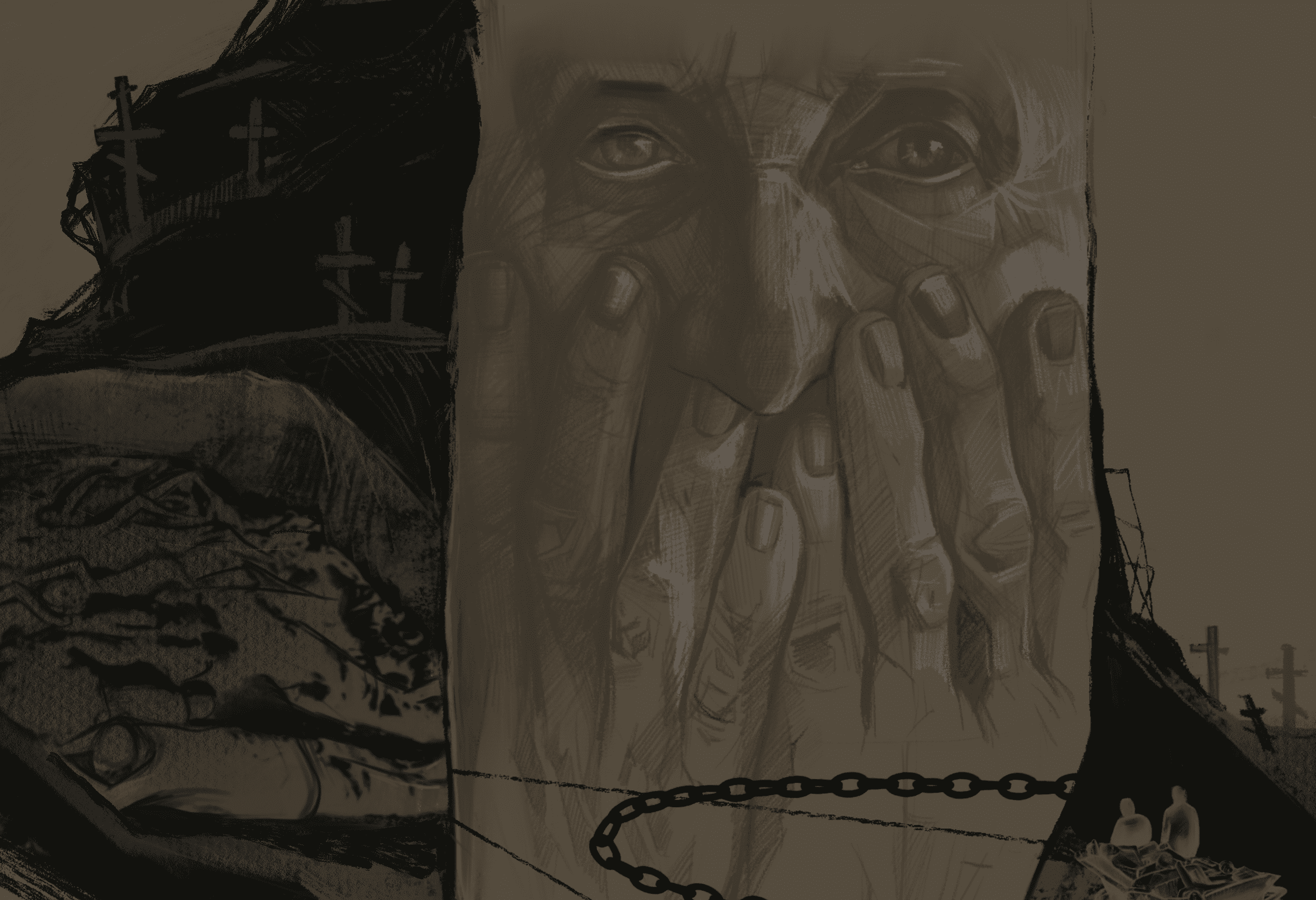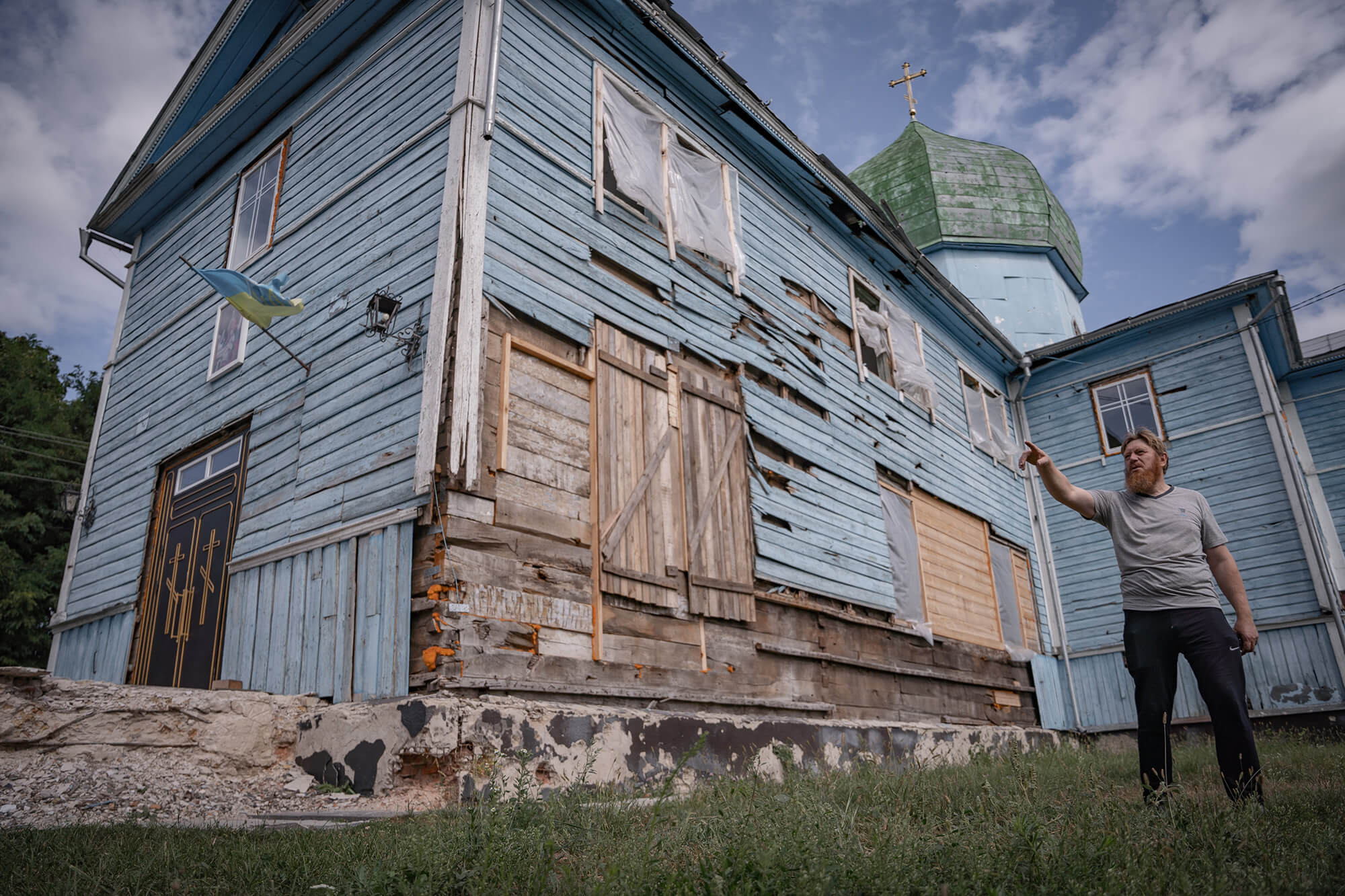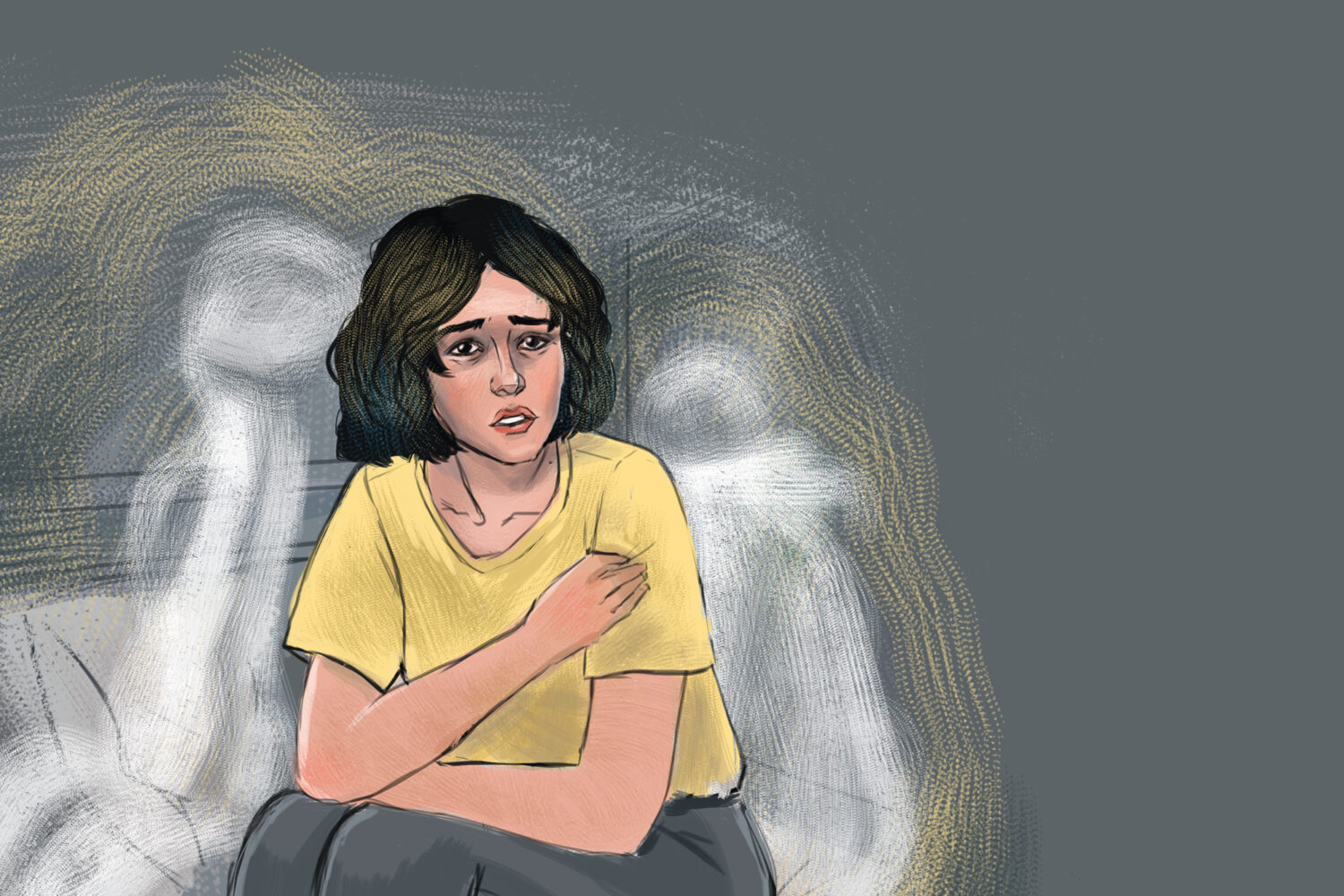
My Five Weeks in a Nuthouse
Six months ago, the author and protagonist of this story suddenly became ill—obsessive thoughts and ideas took control of her everyday life, and reality was replaced by hallucinations. People who crossed paths with her in those days noticed the strange behaviour and confusing, nonsensical messages from her in social media. They sounded the alarm. They contacted her relatives, and the latter had to call a mental health team because the heroine did not realize something was wrong with her. Having spent five weeks at the hospital, she was going back to normal one step at a time and, although still undergoing therapy, decided to share her experience. We publish this text believing that this can happen to anyone and it is equally important to be able to reach out and accept help.
“Sonya, I wrote a book about my mother. I let her go. Her death was not in vain. I do not miss her anymore. I have a boyfriend, he will replace her for me.” Sonya is my best friend, she is my sister’s daughter.
I have not slept for three days. Just could not fall asleep. Rejected by Morpheus, I had a spat with my father and was packing a backpack to go to Kyiv. “My boyfriend is a doctor, he will save me,” I thought. We have met just once, yet, in three months of communication on social media, while he was an intern in Germany, he became the closest person to me. We talked about everything: education, work, sex, relationships, weddings, raising our children and travelling. Head over heels in love, I was convinced: once he comes back from Stuttgart, he would ask me to be his girlfriend.
On Sunday night, while finishing a text about charity, I started noticing the “signs of fate” between the lines. If sheltering someone for the night is a good deed, then I should run away from home and ask a friend to let me stay at her place. It was impossible to listen to my father’s drunken ravings. I could not spend another minute with him. I hated him—for my mother’s death, for all his wives and for my childhood crippled by drunken quarrels.
My mother passed away when I was nine. She died of uterine cancer. In two weeks, another woman was already running the show at our house. I did not understand that my father was drowning his sorrow in women and alcohol. Since then, hatred has been spawning roots in my heart.
And now a taxi was already rushing me to Lychakiv—I was planning to spend the night at my friend’s place, and then. . . The “backpack for Kyiv” was already on my lap.
Mykhailo arrived and we talked all night long, sitting on the bench by the entrance to my friend’s apartment building. His internship ended, he was visiting home and had to go back to the capital in the morning. So he decided to check up on me—I had asked him to come. We talked about my father, my mother, family life, black cats, and children. “Remember, your home is where you are loved.” We were drinking wine from the bottle and smoking cigarettes in the backyard. How romantic. A few minutes before the taxi arrived, he kissed me passionately. It was my fourth day without sleep.
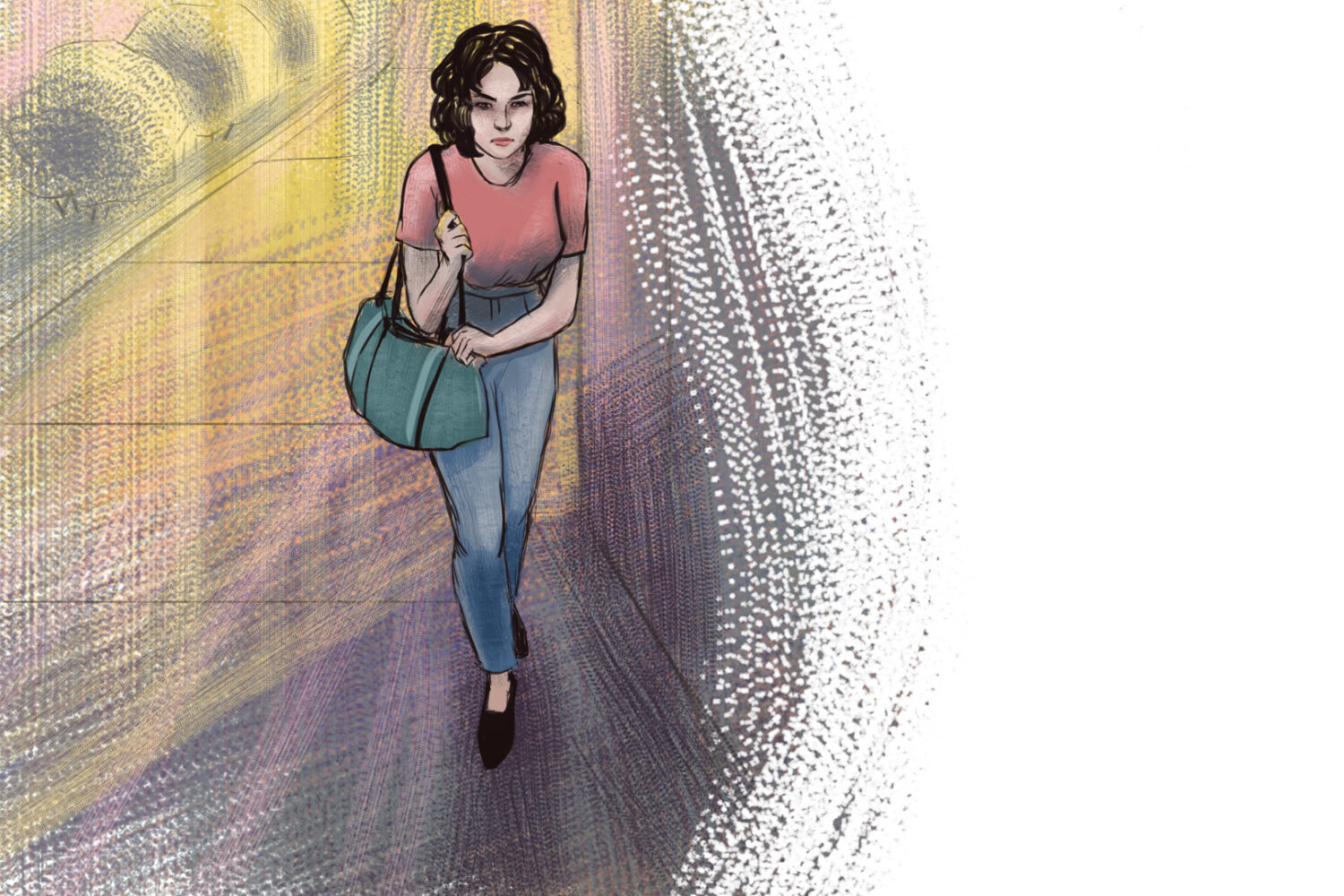
My friend tried to convince me to go back home. She said, it didn’t befit to spend the night elsewhere when I had a home, where I had my things and my memories. Yeah, right! My memories. I preferred to get rid of them above all things. And on Wednesday I was going to buy a one-way ticket to Kyiv and never go back to my father again. No more drunken jabber, no more boozed face, no more dealing with his mistresses. . .
At night I wept silently. And suddenly the world changed. Everything became clear. Swarms of thoughts, as if transparent, and my sweetheart incarnated as an archangel came and was reading them. Every woman is seduced by the devil or an angel in turns. Every woman is torn between good and evil, because it was Eve who was once tempted by the serpent. My thoughts seemed to be guided by God himself. He would take me to Kyiv, where my beloved archangel would win me back from my demon-father.
***
Having taken my friend’s advice, I spent Monday wandering around among things and memories. Yet, the next morning I woke up with the firm intention of never returning to the place where I spent my childhood. I put on a white dress and rushed off to class.
Thoughts and people randomly divided into angels and demons. I saw a sign in every meeting. Taxi driver named Mykola—Nicholas the Wonderworker, my sweetheart—Archangel Michael. Hell suddenly broke loose at the faculty. I was met by devils with tails and hooves at the dean’s office, so I quickly wrote an application for private tuition. It seemed that an angel and a demon lived in me, I could heard their voices. They advised me to leave the place. My classmates, the apostles Peter and Paul, and my editor, the Virgin Mary, were clearly on my side.
“Where should I meet my sweetheart?” I asked Paul.
“On a bridge in Kyiv.”
“Can you hear me? I need help here. I’m attempting a cardiopulmonary resuscitation!” saying this “for camera,” I started performing a chest
massage. . . on a book of reports. My phone was taken away and they called my relatives.
I was feeling dizzy. Everything was swimming before my eyes. Mykhailo entered the auditorium from the hallucination and run his hand through my hair.
“She needs a cardiopulmonary resuscitation. She’s dying,” he said calmly, and I fell into darkness.
***
“Victoria, dear, would you like some tea?” the curator asked me.
“I need a CPR, I am dying. . .”
“You are alive, dear.”
“That is not true. I died and I am going to my mom.”
A dark-haired classmate of mine entered the room.
“Are you my demon?”
“I am your classmate, Sofia. We need to talk.”
“Am I dead?”
“You are alive.”
We talked for an hour about my father, harassment from my stepbrothers, and squabbles with my father’s wives. About all my sins. At that impromptu exam, I was examined by God and the devil. Classmates entered the room—some of them angels, some of them demons. My godmother and my brother arrived. And then, a mental health team.
“Where is my Archangel Michael? He was somewhere around here, I saw him.”
“He is waiting for you at the hospital. Shall we go?”
“Let’s go.”
***
The ambulance raced through the narrow streets of Lviv. Twilight was falling down on the city. I was wrapping myself up in my jacket.
“Will he confess his love to me at the hospital?”
“Could be.”
“But I have no wedding dress. . .”
“You can pick one later.”
In a blue walled ward, I was calling for Mykhailo at the top of my lungs. They foisted me a piece of paper.
“Is this a civil ceremony?”
“Yeah, a civil ceremony.”
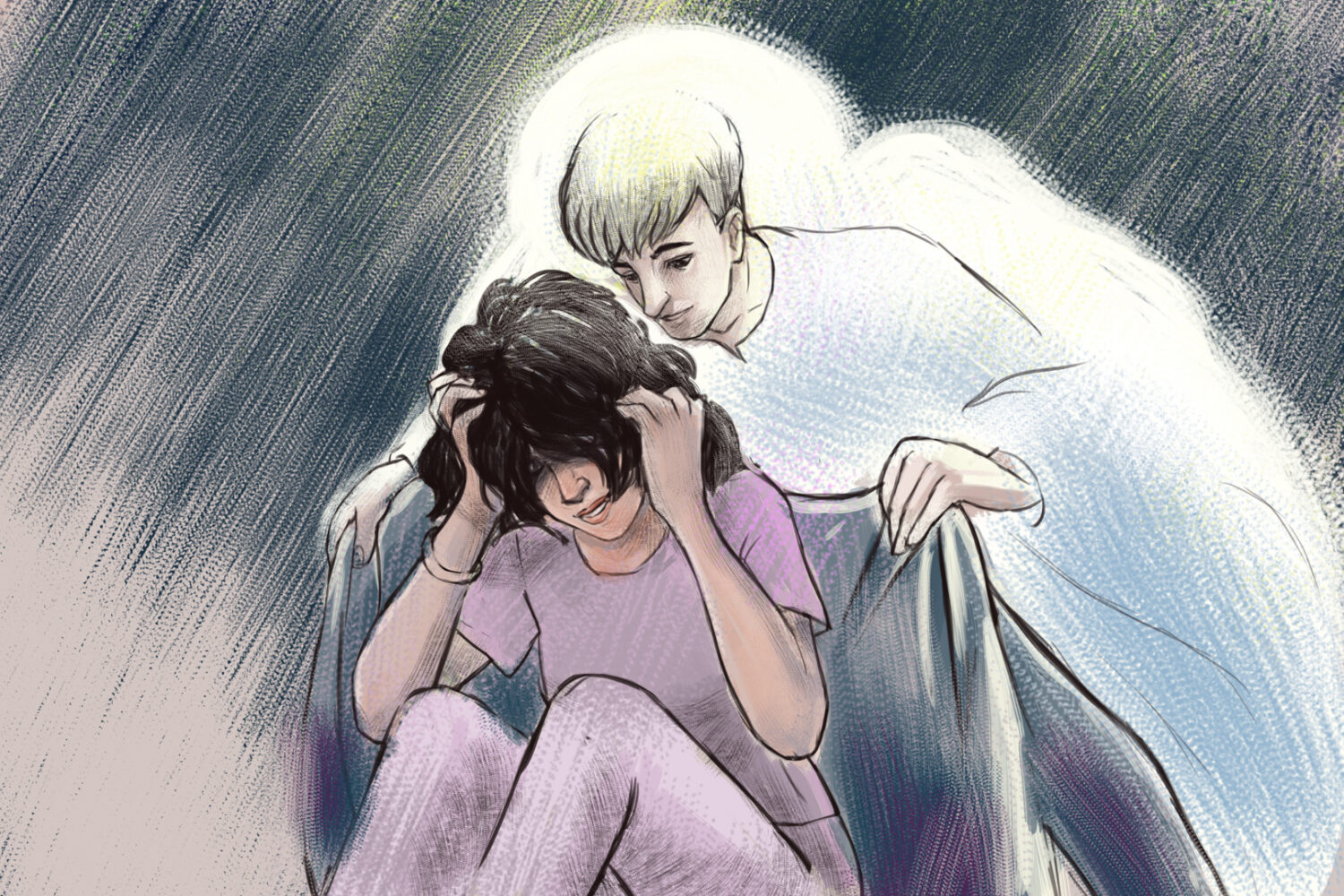
In fact, it was a consent to treatment. I thought that Mykhailo would now enter the room from the corridor with a bouquet of flowers and confess his love to me. My father’s girlfriends harped on all my childhood that the most important thing for a woman was to be a good wife. So I laughed, cried, covered my face with my palms and called, called for my archangel to finally become that good wife.
“Calm down, honey. They will help you here,” my father was taking me to the neighbouring grey rehabilitation department. He came rushing back from his long haul.
***
The room was divided in two—the bigger part for men, the smaller one for women. The windows were grated, the door was armoured. In the far corner of the men’s section, Orest, an ATO veteran, was sleeping covered with a black hood. They said he lost his marbles after the war. I was greeted by a woman in a blue tracksuit jacket, with black hair and a roving glance.
“Нello. What is your name?”
“Viсtoria. Have you seen Mykhailo? He is my fiancée.”
“Oh, so you are victory! And I’m Liudmyla, which means “everybody’s darling”. I own a wedding parlour, with dresses. All doctors here are bad, I make fun of them. You and me—we are in the best ward. Fancy some tea? Or some nuts?”
“No. Where is Mykhailo?”
“We have Orest here. He is Zelensky’s right-hand man. Once I get out, I will marry Orest.”
“And I will marry Mykhailo.”
The nurses came, forcibly gave me an injection, and I fell asleep. For the first time in five days.
***
I had an attack on Wednesday. Through the red haze, I was trying to break out of the ward. The nurses pushed me hard against the wall. Soon my mouth filled with saliva and I lost my tongue.
I woke up on Thursday, tied to the bed with elastic bandages. A nurse was sitting next to me.
“Will you try to escape again? If you do, you’ll have to stay here and soil yourself.”
“I will play nice, just let me go,” I moaned weakly through the tears.
“Behave!”
Yura, a drug addict with a criminal past, same age as me, was transferred to join me, Liuda and Orest in the observation ward. Yura was doing push-ups on his fists, telling us about his first love and how he would be crowned once he got out of here. The observation ward got its name because the inmates were constantly superintended by nurses. They took away our bras, shoelaces, glasses—everything one could use to hurt themselves. They took my Our Lady of Perpetual Help medallion, as well.
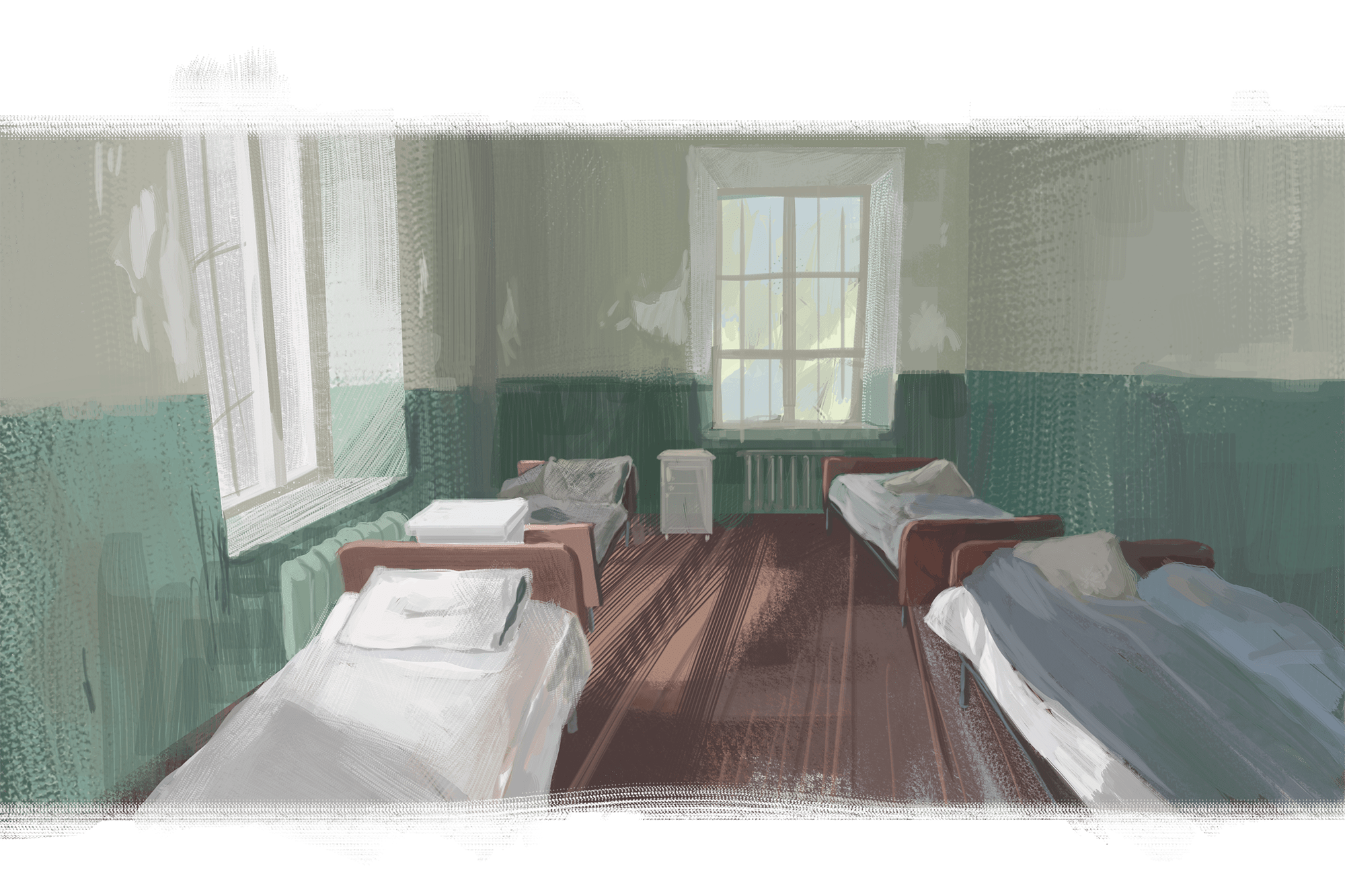
On Tuesdays, Mr. Mykola and the good nurses took over. They joked, treated us to some tea with cookies and were willing to chat about life. And every Thursday the shift was taken over by a humpty-dumpty ward man Vasyl and his white-robed harpies. They were rude, insulting and took advantage of us, the defenceless.
Liuda just would not shut up. Orest tried to drive me crazy. Yura was convulsing because of his withdrawal. On Sunday, we were joined by Ksiusha, a mother of two sons with a complex of a perfect mom. With her boyishly short hair, a gentle face and a sparkle in her eyes, Ksiusha seemed the most adequate of all my roommates. She convinced me that it was not worth getting fixated on a man like that.
Every Monday morning, the Chief Physician and psychiatry students visited all the wards. He would ask us about our health, the students would take notes. He determined how much longer one would need to “chill” in the establishment. The very first Monday, he transferred me to the differential diagnostics ward—one for the non-violent patients with the right to go on walks, have visitors, and make one call to relatives a day. As long as I behaved. Yura and Ksiusha joined me there.
***
Long days of rehabilitation passed me by. Every day they asked me how I was feeling. I replied that I should be discharged because I was totally healthy. And also that I had dreams about my sweetheart, and he was waiting for me in Kyiv, so they should let me go. Psychiatrists were not pleased with my answers.
The food was decent, but there was little time to chew. Everything was scheduled up to the minute. I was throwing up in the first couple of days.
“You barfed all over here, and now I have to clean it?” one of the harpies hissed in my face.
The floor accommodated two bathrooms, on the right side of the corridor. Both had no locks on the doors and were communal, so before using them, one had to knock and make sure they were vacant. The differential diagnostics wards were to the left, and at the end of the corridor there was the armoured door of the observation ward, where everyone was taken at first, no exceptions. Liudmyla, “everybody’s darling,” lived there behind bars for the third month. The smoking room was next to the observation ward, and in front of the entrance there was a registration counter and lockers with patients’ personal belongings. The embassies of lives past.
Ksiusha was discharged while I was on my first week of treatment.
“Once you realize that this is where they will help you, you will be released. Stay strong,” she hugged me goodbye.
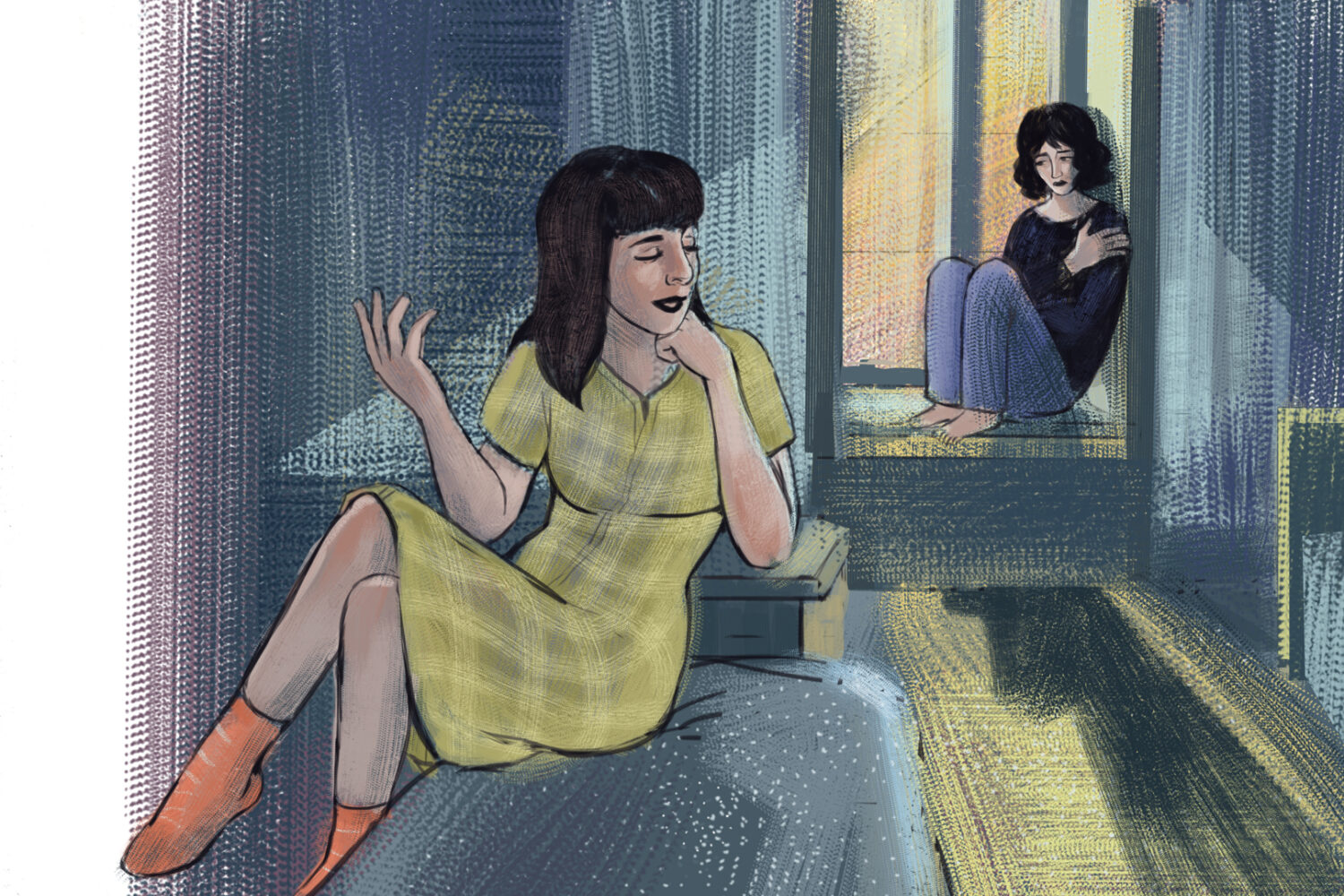
Yura went home (or maybe to his coronation) two days later.
Every day they stuffed me with unknown drugs. A small yellow pill at night and two white biggies in the morning and at night. There was a daily session with a psychotherapist—art therapy, music therapy or psychological tests. The warm autumn was passing me by.
***
Wake up. Make your bed. Report on your general state. Take your meds. Call dad. And wait for the night. Wait for it because you are free in your dreams. And I was dreaming only about Mykhailo—because of the drugs or despite them.
Daddy came to visit me every night. I rushed to him and swooned in his arms. Well, there you are. The man I hated was teaching me to love again. With nowhere to retreat, my back pressed against the armoured door of the observation ward, I was little Vitusia again. While he waited for me there, behind the wall, his black hair turned silver-grey.
Visits were allowed until seven in the evening, but the “Wonderworker,” Mykola allowed my father to come any time. One day he arrived late, and the next shift did not let him into the department. I was only allowed to hug him and take the parcel.
“Dad, get me out of here,” I said in tears. My third week of five passed, and the doctors were in no hurry to let me go
“I will, honey. Just hold on a little bit longer.”
Later I asked them to let me go home for the weekend.
***
My first weekend at home, I went for a walk with the dog in the evening, took a deep breath, looked at the stars, and it was like something let go of me. I was able to talk freely again, the everlasting “pressure,” the compression in my head, disappeared.
While at home, after my first week at the hospital, I called Mykhailo.
“Hello!”
“Hello. Why are you calling?”
“Well, I. . . I am at home and they will discharge me soon. The doctors say I am making progress, and. . .”
“So, why are you calling? Huh? Nah, he didn’t tell me,” he was distracted talking to someone else.
“I. . . wanted to talk to you.”
“Well, you just did,” he jeered me. “Listen, did you, by any chance, smoke anything?”
“Just one cigarette. Why?”
“Never mind. Gotta go now. I’m on duty,” he hung up.
Later he sent me a message on Instagram and asked to forget him. That way it would be easier for me to get better, he said.
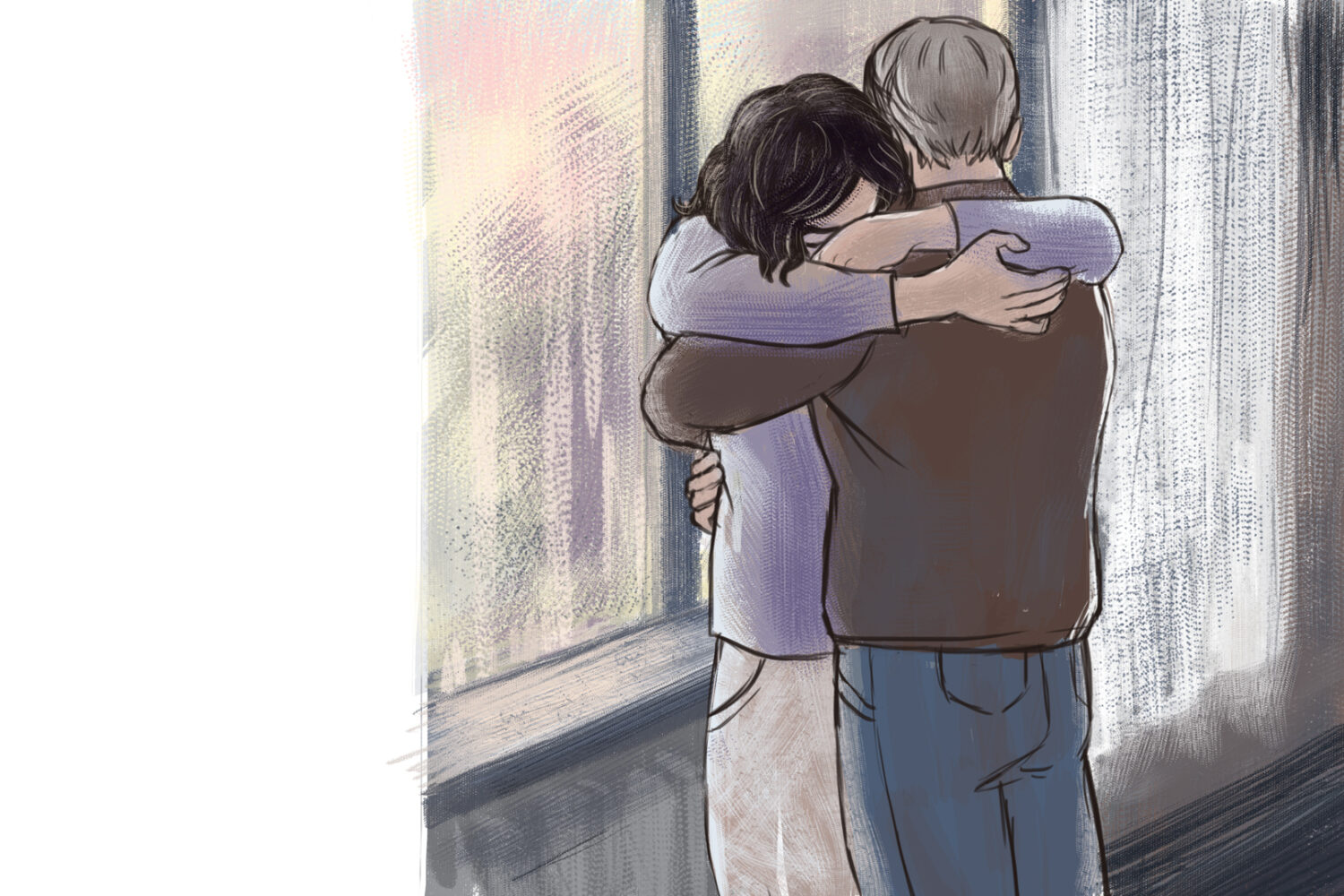
***
Early in the morning on Monday, my father took me back to the hospital. That day was the first time I didn’t fail the psycho test. I answered the questions clearly, without looking for subtexts in what they said. Since then, I was allowed to spend every weekend at home.
The night after I was taken back to the hospital, I woke up calling Mykhailo. I looked up at the barred sky. An electric current passed through my body. It trembled and something uncomfortable, superfluous left me.
“I am letting you go,” I whispered.
I took pills dutifully and counted the hours before my dad arrived. My roommates kept changing. I was joined by another mother, Oksana, suffering from postpartum depression. One night during bedtime, a nurse was talking loudly to someone on the phone. Oksana asked her to lower her voice, saying that she was intolerant of patients.
“I’m at my job, not yours! If you were tolerant, your husband wouldn’t bring you here!” the healthcarer lashed out.
The next day I was told it was my last week there.
At my last art therapy class, we were listening to Mozart and asked to draw associations. I drew flowers in the rain and explained: the flowers need rain to live on. The counsellor smiled and wished me to be strong.
Then the Chief Physician called me in. He was silent for a long time, and then said:
“You had a psychotic breakdown fuelled by your mother’s death. It was strengthened by days without sleep and an unhappy love. I would understand if you start banging your head against the wall now, because I reminded you of your wounds.”
“Well. . . you see. . . I miss her very much. But what I’m most afraid of is finding myself in that observation ward and going through it all over again,” I buried my face in my palms and cried.
“So, maybe it would make sense to do it again?”
“No. I will manage.”
“Mind that the first two years are the most dangerous. You have to take medication all the time. And you cannot get pregnant or have children at this time. What would you like to do right now?”
“I would like to go hiking in the mountains.”
The next day my dad came to pick me up. I packed my things, hugged my neighbours goodbye and went home.
***
Volodymyr Stanchyshyn, psychologist, Chief of the Laboratory of Change Mental Health Centre in Lviv:
“Stop imagining things! Get a hold of yourself!”—this is the most common reaction to the psychological struggles of others in our society. But this is an extremely dangerous advice: mental health, much like physical one, cannot be neglected. When we have a stomachache or a black spot on our teeth, we go to see a doctor. And when we struggle with bad mood that we cannot overcome for weeks, suicidal thoughts or other mental issues, we usually experience them all on our own—any way we can. But it should not be like that. “Once you realize that this is where they will help you, you will be released,”—these words from one of the people in the story are truly key. A psychotherapist or a psychiatrist is a professional, just like other doctors, so be unashamed of seeking their help.
But we are afraid to. It has become trendy for us to take care of our own bodies, but our society still lacks a culture of mental health. To an extent, we have already learned to empathize with those who have physical disabilities or illnesses, but we still shy away from mentally ill people. We are stereotypically afraid that mental illness is incurable, although even in such cases there may be long periods of remission. Of course, we cannot help but be frightened when someone loses their personality in a serious mental disorder, and in moments of attacks or breakdowns are no longer themselves. With a broken arm, I remain who I was before the fracture, which is not the case in psychiatry—a sick person has no control over their own consciousness. It is scary not to be yourself and it is scary to communicate with someone who is out of it. But paying attention to mental health can be very helpful in overcoming the disease.
If you see that something is wrong with the person close to you—sound the alarm. If you are not close enough, contact their relatives or someone whom they trust and who will be able to take them by the hand and say: “No need to be afraid! I have your back and we are going to see a doctor.” Do not hesitate to lend a helping hand. After all, if your friend started coughing blood you would not tell them to “stop imagining things.” And even when patients are admitted to a psychiatric institution, they need support just like anyone in cases of regular hospitalization: patients need love, understanding, and someone by their side.”
[This publication was created with support of the Royal Norwegian Embassy in Ukraine. The views and opinions expressed in this publication are those of the authors and do not necessarily reflect the official position of the Norwegian government.]
Have read to the end! What's next?
Next is a small request.
Building media in Ukraine is not an easy task. It requires special experience, knowledge and special resources. Literary reportage is also one of the most expensive genres of journalism. That's why we need your support.
We have no investors or "friendly politicians" - we’ve always been independent. The only dependence we would like to have is dependence on educated and caring readers. We invite you to support us on Patreon, so we could create more valuable things with your help.
Reports120
More